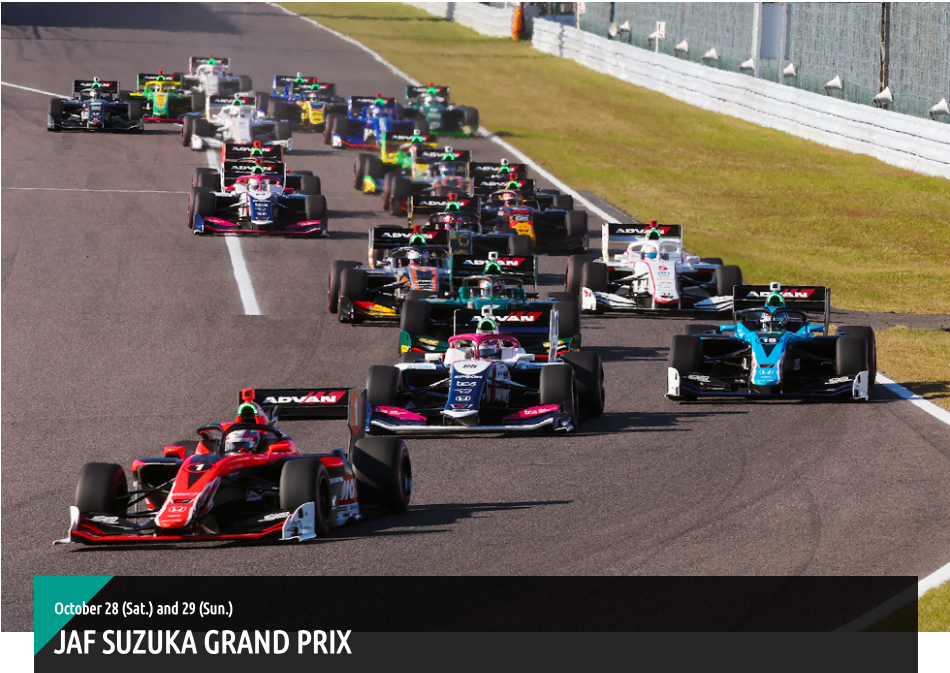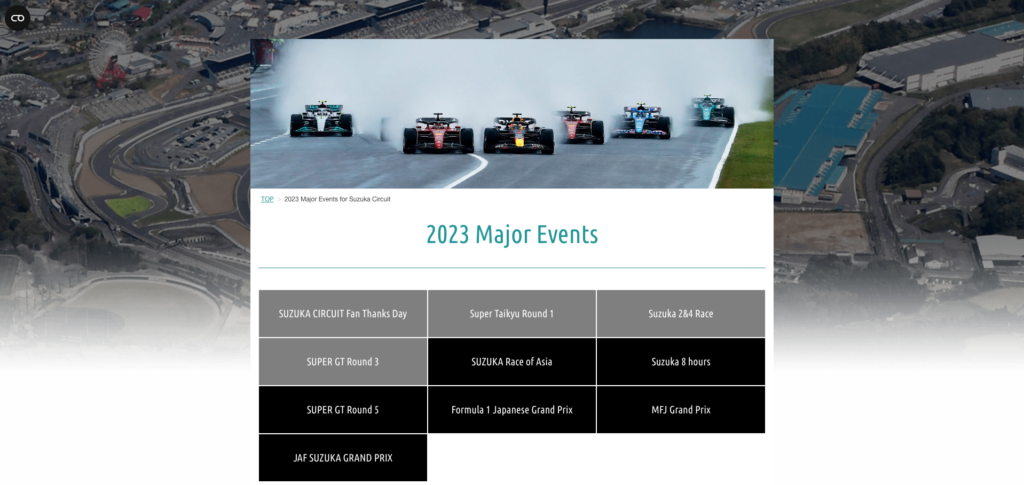Japan Grand Prix: The Suzuka GP in Japan will take place on the weekend of September 22-24, 2023. The Formula One race will start following the Singapore Grand Prix. Formula 1's next stop will then be the Qatar Grand Prix - Doha.

Motorsport races have been held under the name Japan Grand Prix since 1963. Originally, races were held at both the Suzuka track and Fuji Speedway.
It was only in 1976 and 1977 that the Japan Grand Prix first became part of the official Formula One racing calendar. These two races were still held on the Fuji circuit.
Between 2007 and 2008, Formula One returned to Fuji Speedway. The plan was for the race to alternate annually between Suzuka and Fuji starting in 2009. However, due to financial difficulties, Fuji Speedway's operator, Honda, cancelled.
From 1986 to 2006, the Japan Grand Prix was held exclusively at the Suzuka International Racing Course.
Since 2009, Suzuka has been the permanent venue for the Japan Grand Prix. Due to the global COVID pandemic, the race was not held in both 2020 and 2021.
The Suzuka International Racing Course stretches over a length of 5.807 kilometers. During a race, 53 laps are completed, for a total distance of 307.573 kilometers.
The special feature of the Suzuka International Racing Course is its unique figure-8 design. It is the only track on the Formula One calendar to run in a loop in the shape of an eight. This layout is perhaps reminiscent of the Carrera tracks of our childhood.
Another outstanding feature of the track is the Esses Passage. Here, cars negotiate five consecutive turns at speeds of over 200 kilometers per hour. Shortly after comes the Dunlop Curve, followed by the treacherous Degner Curve.
The track is also known for its changeable weather conditions, which often make the race unpredictable and test the drivers' skills.
In summary, the Suzuka International Racing Course is a challenging, fast and fascinating track. Fans around the world especially love the Japanese Grand Prix races because of these unique features.

Lewis Hamilton has once again set a track record for the fastest race lap at the Japan Grand Prix. He set a record time of 1:30.983 minutes in 2019.
The absolute fastest lap on this track was set by German driver Sebastian Vettel. In qualifying for the 2019 Suzuka Grand Prix, he clocked a record time of 1:27.064 minutes in his Ferrari.
Michael Schumacher leads in both most wins and pole positions at the Japan Grand Prix. He has won the race six times and has been on pole, the number one starting position, for the race a total of eight times.
| Year | Winner | Circuit |
|---|---|---|
| 2022 | Max Verstappen (Red Bull-Renault) | Suzuka |
| 2021 | No race due to corona pandemic | Suzuka |
| 2020 | No race due to corona pandemic | Suzuka |
| 2019 | Valtteri Bottas (Mercedes) | Suzuka |
| 2018 | Lewis Hamilton (Mercedes) | Suzuka |
| 2017 | Lewis Hamilton (Mercedes) | Suzuka |
| 2016 | Nico Rosberg (Mercedes) | Suzuka |
| 2015 | Lewis Hamilton (Mercedes) | Suzuka |
| 2014 | Lewis Hamilton (Mercedes) | Suzuka |
| 2013 | Sebastian Vettel (Red Bull-Renault) | Suzuka |
| 2012 | Sebastian Vettel (Red Bull-Renault) | Suzuka |
| 2011 | Jenson Button (McLaren-Mercedes) | Suzuka |
| 2010 | Sebastian Vettel (Red Bull-Renault) | Suzuka |
| 2009 | Sebastian Vettel (Red Bull-Renault) | Suzuka |
| 2008 | Fernando Alonso (Renault) | Fuji |
| 2007 | Lewis Hamilton (McLaren-Mercedes) | Fuji |
| 2006 | Fernando Alonso (Renault) | Suzuka |
| 2005 | Kimi Räikkönen (McLaren-Mercedes) | Suzuka |
| 2004 | Michael Schumacher (Ferrari) | Suzuka |
| 2003 | Rubens Barrichello (Ferrari) | Suzuka |
| 2002 | Michael Schumacher (Ferrari) | Suzuka |
| 2001 | Michael Schumacher (Ferrari) | Suzuka |
| 2000 | Michael Schumacher (Ferrari) | Suzuka |
| 1999 | Mika Häkkinen (McLaren-Mercedes) | Suzuka |
| 1998 | Mika Häkkinen (McLaren-Mercedes) | Suzuka |
| 1997 | Michael Schumacher (Ferrari) | Suzuka |
| 1996 | Damon Hill (Williams-Renault) | Suzuka |
| 1995 | Michael Schumacher (Benetton-Renault) | Suzuka |
| 1994 | Damon Hill (Williams-Renault) | Suzuka |
| 1993 | Ayrton Senna (McLaren-Ford) | Suzuka |
| 1992 | Riccardo Patrese (Williams-Renault) | Suzuka |
| 1991 | Gerhard Berger (McLaren-Honda) | Suzuka |
| 1990 | Nelson Piquet (Benetton-Ford) | Suzuka |
| 1989 | Alessandro Nannini (Benetton-Ford) | Suzuka |
| 1988 | Ayrton Senna (McLaren-Honda) | Suzuka |
| 1987 | Gerhard Berger (Ferrari) | Suzuka |
| 1978-1986 | No Japanese Grand Prix | |
| 1977 | James Hunt (McLaren-Ford) | Fuji |
| 1976 | Mario Andretti (Lotus-Ford) | Fuji |
| 1975 | Masahiro Hasemi (March) | Fuji |
| 1974 | No Japanese Grand Prix | |
| 1973 | Motoharu Kurosawa (March) | Fuji |
| 1972 | John Surtees (Surtees) | Fuji |
| 1971 | Kuniomi Nagamatsu (Mitsubishi) | Fuji |
| 1970 | No Japanese Grand Prix | |
| 1969 | Motoharu Kurosawa (Nissan) | Fuji |
| 1968 | Moto Kitano (Nissan) | Fuji |
| 1967 | Tetsu Ikuzawa (Porsche) | Fuji |
| 1966 | Yoshikazu Sunako (Prince) | Fuji |
| 1965 | No Japanese Grand Prix | |
| 1964 | Michael Knight (Brabham) | Suzuka |
| 1963 | Peter Warr (Lotus-Cosworth) | Suzuka |
Did you know there's a way to watch all Formula One races for free and without a pay-TV subscription? In our linked article we explain you how it works exactly. It's easy as pie and you can save a ton of money in the process.
